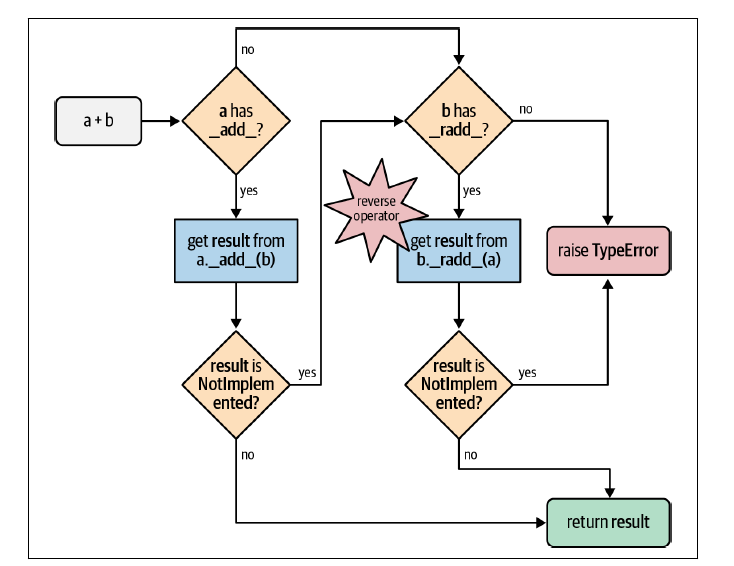Operator overloading is when a given operator behave differently according to the type of the operand(s). For example, the + operator can add two number, concatenate strings, and merge two lists. This mean int, str, and list classes have their own implementation of the + operator.
Python has limited operator overloading with some limitations where we can’t create new operators and prevent overloading for:
- operators of the built-in types
is,and,or,not
If an operator doesn’t know how to handle the type of an operand, it returns NotImplemented so the interpreter tries to check the right-side operand if it knows how to handle it. Below is the flowchart of computing a + b with __add__ and __radd__ (Source):
